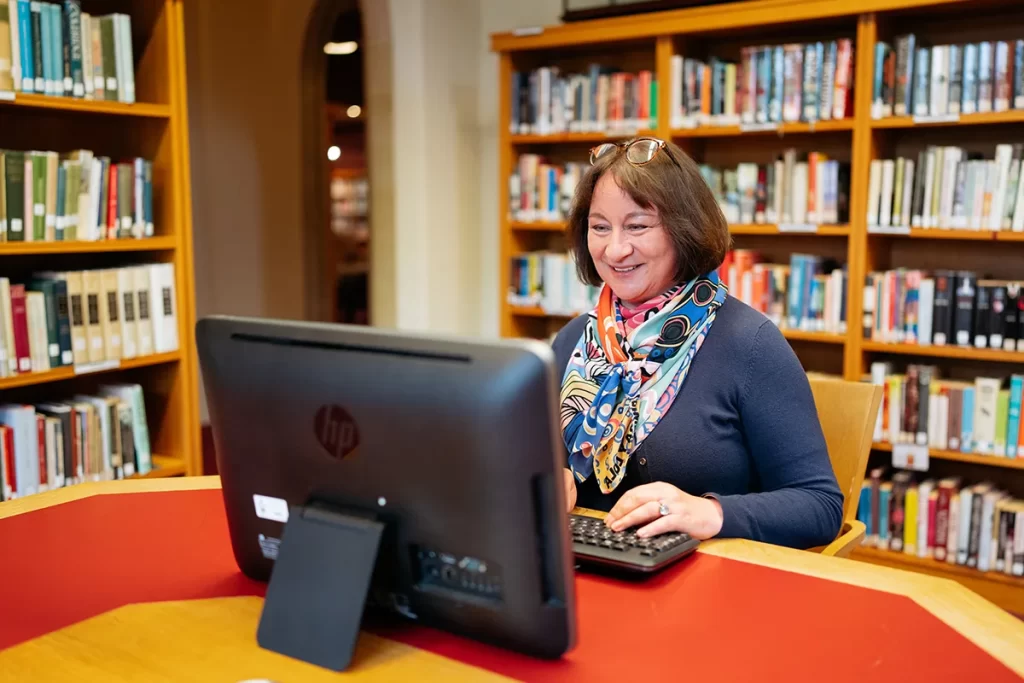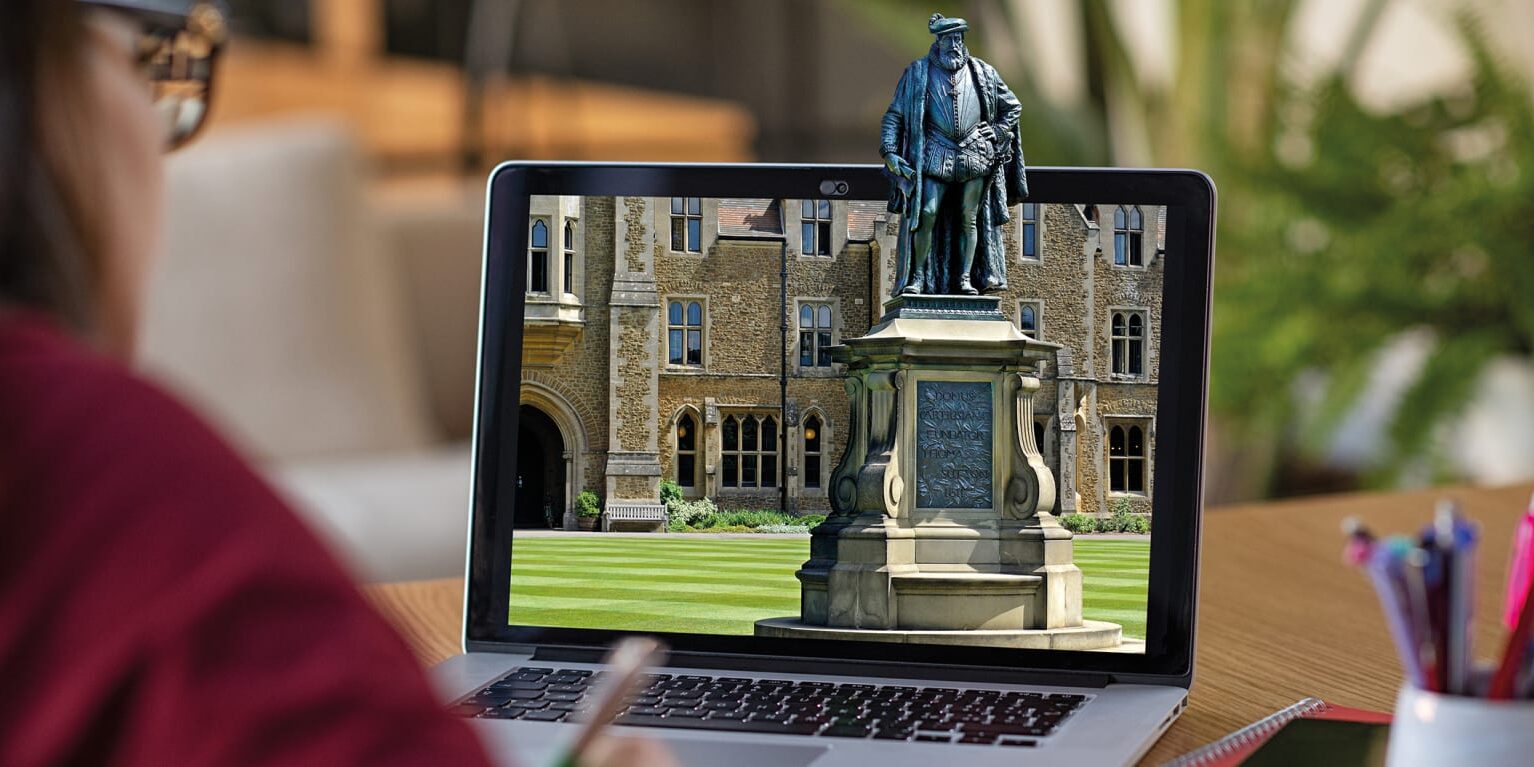E-learning brings a new pedagogy to the world of education, one where the classroom is re-confined to the pixels of a laptop, computer, phone or tablet. Courses conducted digitally via electronic media also means teachings and learning are not bound to a certain locale, or a traditional syllabus.
Learning methods and practices can take a new direction thanks to interdisciplinary technological advancements in communication, programs and internet cultures. Learn more about the advantages of e-learning here.
EdTech
Even before the COVID-19 restrictions, the physical classroom was already being restructured around technology in order to help teachers and students alike improve the quality of education. ‘Edtech’ has helped classrooms and teachers develop a new form of learning architecture.
One where the internet becomes a powerful research and personalised tool as a means to gain more information whilst developing soft, independent research skills.
More recently, new models of E-learning in the form of AI, AR and VR have been creeping into both social and educational spaces. With the near introduction of Mark Zuckerberg’s Metaverse and the debate around OpenAI’s ChatGPT, the way education is shaped around people’s lives is changing in unanticipated ways.
The World Bank notes that learning by these means can help build interpersonal relationships, improve accessibility for people with disabilities, and increase data capture on learning performances. These elements have always been on the forefront in education – where technology is now a vessel for increased progress.
These concepts on paper provide an optimistic lens in the introduction of technology heavy alternatives in education. But how do they translate, in real time, for the average young person in education right now?
Charterhouse Online
We spoke to Karen Davies, the Principal of Charterhouse Online and the Director of International Education at Charterhouse School, to find out how the launch of their one year online A-level course is helping students connect with some of the best UK education, globally.

Davies has years of experience in education under her belt, having worked with a number of British Independent Schools include Millfield School, Cheltenham College and Amesbury Prep School. Her mission at Charterhouse Online, prevails her experience and dedication in the early developments of e-learning within educational spaces.
Charterhouse has historically been a valuable force of providing some of the best academic and rigorous self-development approaches in education. They have always been an innovative institution both with their pedagogy and syllabus. So, it seems only right that they have introduced a new way to study. One that is not tied to the shackles of the locale nor the physical ability of a student.
E-learning through models such as Charterhouse Online have changed the scope of studying online and its ability to be classed with the same credibility as a traditional course. Davies explains that by “Using a unique combination of accelerated learning approaches, Charterhouse Online offers an A Level programme that can be completed in only one academic year.
Backed by the expertise of one of the UK’s leading schools we offer a choice of six A Level subjects and intensive support, including two on-site modules, that enables students to apply to some of the world’s top universities.” Find out more here.
Developed e-learning models such as Charterhouse Online are seen to want to challenge the traditional, ‘one size fits all’ approach of learning. This has also been seen within the wider education sector, where 2022 saw an increase of 27% in home education.
Charterhouse Online does not discredit traditional classroom-based learning. They have achieved quite the opposite – by introducing an anticipated progression to education – bring educators, classrooms and their teachings to the forefront of a global student audience. It is through this mission that the recognition of circumstance rather than choice is also validly apparent.
With or without the subsequent COVID-19 pandemic, many parents and students feel that they have been left dislocated within the architecture of traditional education.
The ADCS reported that in 2022, the top three reasons provided by parents or carers for choosing to home educate their children are as follows (in the correct order): 1) Health concerns relating specifically to COVID-19, 2) Philosophical or lifestyle choice, and 3) Health/ emotional health.
An increase in home education is therefore a by-product of a changing socio-political landscape that can be worrisome regarding trust or accessibility of traditional avenues of education.
To combat this, the intersection between technology and education has seen to have a positive impact in the teachings and educational ability of young people. One that takes a world stage, for an increasingly online student audience – and one that is geopolitically set up to serve a globalised community.
Who is E-learning for?
The traditional classroom is rooted in a pedagogy of interpersonal relationships in the form of teacher-to-student and student-to-student. The syllabus and teachings are shaped through group work, participations and the physical proximity of conversation.

Arising questions are answered immediately and are heard by everyone. Teachers are also able to closely monitor students on both their academic progress and mental/ physical wellbeing.
E-learning might seem like it takes a different approach but, this is far from truth. Learning online takes the same pedagogy of the traditional classroom – and restructures it through a digital screen.
Communication technologies such as Zoom have enabled the ability for a classroom to operate fully online. This online classroom has the potential to facilitate the same traditional pedagogy of interpersonal relationships and engagement. The only difference is the location of students and teachers. Proximity of the teachings or the conversation also holds the same weight.
E-learning can also help develop self-resilient skills that are much harder to explore in the classroom. Davies notes that E-learning suits students that prefer an independent approach to learning. But highlights that this does not dimmish support and guidance by teachers, nor the credibility to use an online A-Level program to apply to university.
“Charterhouse Online will suit academically ambitious, hard-working and motivated students looking to open the doors to some of the top universities in the world and who will benefit from an accelerated A Level programme.”
These Independent and self-reliance skills that students build through an online course, provides invaluable skills that can better prepare students in their next stages at university, and career, thereafter. Building these skills early on, will only help young people’s self-confidence and self-resilience, a skill that can be harder to gain through traditional education.
Is an online A-level course credible for university applications?
Charterhouse has historically had a holistic approach to education, where student examination results are some of the best in the sector. With this in mind, students can expect the same level of support from an online course, as they would from a traditional classroom.
Davies told Gabbitas that contrary to the belief that online courses do not offer the same credibility in the eyes of universities, Charterhouse Online offers a specialised support system for their Oxbridge applicants. Contact Gabbitas for more information on this.
“Charterhouse Online is superbly well-placed to support each of our students in their applications to top universities, building on the vast experience of Charterhouse School’s success in preparing generations of sixth form students for the next stage of their academic careers.”
Thinking of applying to Charterhouse Online or want more information? Speak to our team of highly experienced education consultants by emailing info@gabbitas.com or call +44 (0) 203 026 7443.


